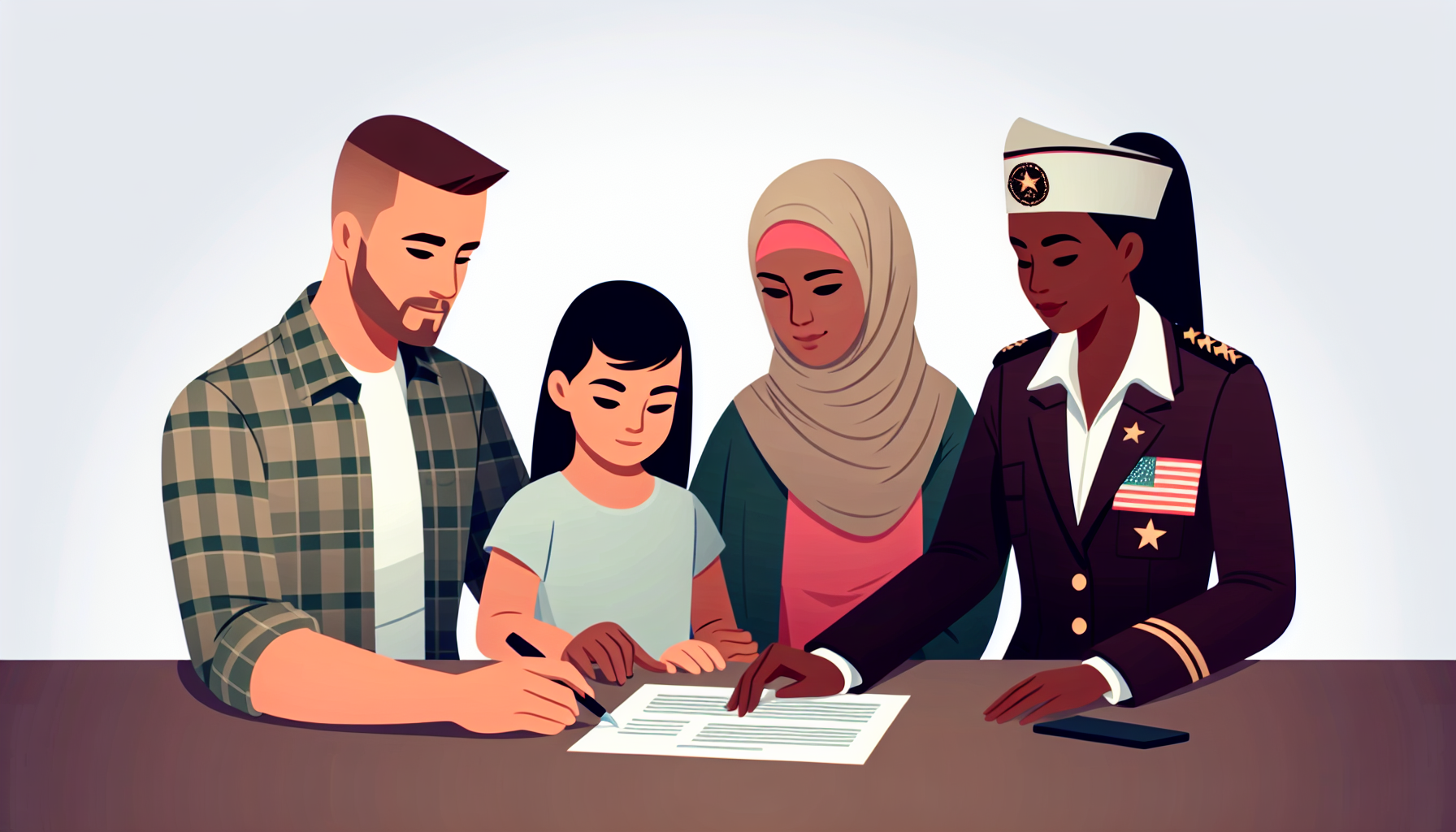Definition
Assumption of Mortgage is a VA benefits term referring to the process where a homebuyer takes over the existing mortgage of a property from the original borrower. In this arrangement, the homebuyer assumes responsibility for repaying the loan, including the outstanding debt, interest rates, and remaining loan term. This can be advantageous for both the original borrower, who is relieved of mortgage payments, and the homebuyer, who may obtain a lower interest rate or avoid certain closing costs.
Key Takeaways
- Assumption of Mortgage refers to the process where a qualified buyer takes over an existing VA-guaranteed mortgage from the current homeowner.
- This process allows the buyer to benefit from the lower interest rates and mortgage terms of the VA loan, while releasing the original homeowner from the financial obligation.
- To assume a VA loan, the buyer must meet the VA’s credit and income standards and obtain approval from the lender and/or the VA, ensuring that the loan continues to have the VA guarantee.
Importance
The term “Assumption of Mortgage” is important in the context of VA benefits because it allows an eligible borrower to take over the mortgage payments and remaining balance from the original veteran borrower without having to secure a new loan.
This transfer of responsibility can help streamline the process of buying a home and potentially offer more favorable terms and interest rates to the new borrower.
As a result, the assumption of mortgage can benefit both the original veteran borrower, by making it easier to sell their home and exit the loan, and the new eligible borrower, who has the opportunity to leverage the advantages of a VA loan without undergoing a traditional loan process.
It plays a significant role in promoting accessibility and affordability in homeownership for veterans, service members, and their families.
Explanation
Assumption of Mortgage is an important aspect of VA benefits that aims to provide support and flexibility to both buyers and sellers during the transfer of property ownership. The primary purpose of this provision is to enable an eligible buyer to take over the existing VA-guaranteed loan from the seller, allowing them to effectively “assume” the current mortgage terms and conditions, instead of obtaining a new loan for the same property.
This type of transaction often benefits both parties, as the buyer can take advantage of the existing loan’s potentially lower interest rates and acquire the property without having to go through the entire loan approval process, while the seller is relieved of the responsibility to repay the mortgage. In addition to streamlining the property purchasing process, Assumption of Mortgage serves the purpose of offering financial relief to sellers, particularly during difficult economic times or when they face personal financial challenges.
By allowing another eligible individual to assume their VA-guaranteed loan, the seller can quickly sell their property, avoid foreclosure, and safeguard their credit score. Furthermore, the buyer can capitalize on the opportunity to purchase a property with favorable loan terms.
It is essential to note that the VA and the loan servicer must approve the buyer for them to utilize the Assumption of Mortgage benefit. This ensures that the purchaser meets the necessary qualifications and has the financial capacity to maintain the loan payments, helping to maintain the integrity of the VA Home Loan program and protect all parties involved.
Examples of Assumption of Mortgage
Example 1: A military servicemember, who has used a VA loan to purchase a home, receives new orders requiring them to relocate to another base. Rather than selling the home, the servicemember finds a qualified buyer who is also a veteran. The buyer assumes the mortgage, including the remaining principal balance and interest rate, subject to the lender’s approval. This allows the original owner to move without the need to sell the property.
Example 2: A widow of a veteran, who had a VA loan, decides to downsize and move to a smaller home. She finds another eligible veteran who is interested in purchasing her home. She contacts her lender and requests an assumption of the mortgage. After verifying the buyer’s eligibility and financial qualifications, the lender approves the request and allows the new buyer to assume the mortgage with the same loan terms.
Example 3: A veteran purchases a home with a VA loan and decides to rent the property to a tenant, who is also an eligible veteran. After several years, the tenant decides they would like to buy the property from the owner. The owner and tenant contact the lender and submit a mortgage assumption application along with proof of the tenant’s eligibility. The lender conducts a thorough review and, finding the tenant to be qualified, approves the assumption of the mortgage. The tenant becomes the new homeowner, assuming the remaining loan balance and terms.
FAQs: Assumption of Mortgage – VA Benefits
What is an Assumption of Mortgage in the context of VA benefits?
An Assumption of Mortgage refers to the process where a qualified individual can take over the existing VA loan of a seller when purchasing a home. In this scenario, the buyer assumes responsibility for the existing loan terms, payment schedule and interest rate. This process is beneficial for both the buyer and the seller as it eliminates the need for a new mortgage, and it helps the seller sell their home more easily.
Who can assume a VA loan?
A VA loan can only be assumed by a qualified individual, which means the buyer must meet the Department of Veterans Affairs’ credit and income requirements. The assumable VA loan can also be passed onto a non-veteran individual, but the original borrower must remain liable for the full repayment of the loan. Such transfers should be approved by the lender and the VA.
How does the assumption process work?
The assumption process begins when both parties, the buyer and the seller, agree on the terms of the transaction. The buyer needs to get approval from the lender and the VA for the assumption of the existing mortgage. Once the VA reviews the application, it will either approve or deny the request based on the eligibility and qualifications of the buyer. If approved, the buyer assumes responsibility for the loan and the seller is released from further liability.
What are the benefits of an Assumption of Mortgage?
An Assumption of Mortgage offers various benefits to both the buyer and the seller. For the buyer, it may result in lower closing costs and sometimes provide better interest rates compared to a new loan. On the other hand, the seller might be able to sell their house faster since assumable loans make their property more attractive to potential buyers.
Are there any fees associated with an Assumption of Mortgage?
Yes, there are some fees linked to an Assumption of Mortgage, such as the VA funding fee and other closing costs. The VA funding fee is a percentage of the loan amount, typically ranging from 0.5% to 3.3%, depending on the type of loan and other factors. Closing costs can include lender’s charges, recording fees, and other related expenses. Both parties should discuss and agree upon the payment of these fees during the assumption process.
Related VA Benefit Terms
- Loan Assumption
- Veterans Affairs (VA) Home Loan
- Loan Transfer
- Assumption Approval
- Release of Liability
_hero
Sources for More Information
 Benefits.com Advisors
Benefits.com Advisors
With expertise spanning local, state, and federal benefit programs, our team is dedicated to guiding individuals towards the perfect program tailored to their unique circumstances.
Rise to the top with Peak Benefits!
Join our Peak Benefits Newsletter for the latest news, resources, and offers on all things government benefits.




















